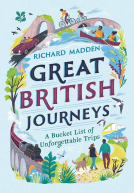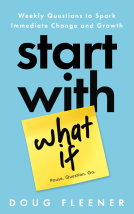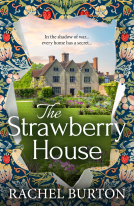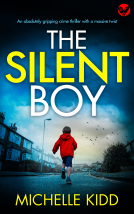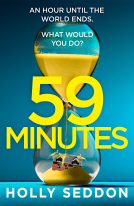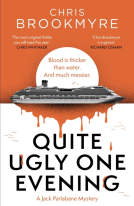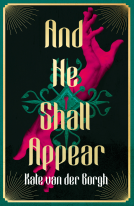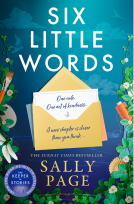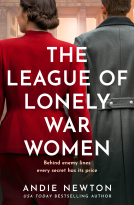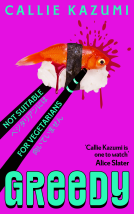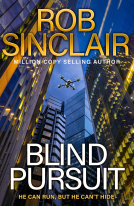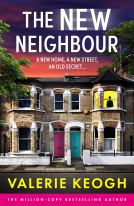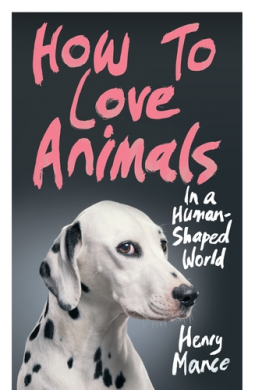
How to Love Animals
In a Human-Shaped World
by Henry Mance
This title was previously available on NetGalley and is now archived.
Send NetGalley books directly to your Kindle or Kindle app
1
To read on a Kindle or Kindle app, please add kindle@netgalley.com as an approved email address to receive files in your Amazon account. Click here for step-by-step instructions.
2
Also find your Kindle email address within your Amazon account, and enter it here.
Pub Date 29 Apr 2021 | Archive Date 29 May 2021
Random House UK, Vintage | Jonathan Cape
Talking about this book? Use #HowtoLoveAnimalsinaHumanShapedWorld #NetGalley. More hashtag tips!
Description
A far-reaching, urgent, and thoroughly engaging exploration of our relationship with animals - from the acclaimed Financial Times journalist.
*A GUARDIAN 'BOOKS OF 2021' PICK*
We all love animals, but does that make their lives happier?
With factory farms, climate change and deforestation, this might be the worst time in history to be an animal. In an age of extinction and pandemics, our relationship with the other species on our planet has become unsustainable. What if we took animals' experiences seriously - how would we eat, think and live differently?
Henry Mance sets out on a personal quest to see if there is a fairer way to live alongside other species. He goes to work in an abattoir and on a farm to investigate the reality of eating meat and dairy. He explores our dilemmas around hunting wild animals, over-fishing the seas, visiting zoos, saving wild spaces and owning pets. He meets the chefs, farmers, activists, philosophers, scientists and tech visionaries who are redefining how we think about animals.
This is not a book about what animals can do for us, but what we can do for animals.
Available Editions
| EDITION | Other Format |
| ISBN | 9781787332089 |
| PRICE | £20.00 (GBP) |
| PAGES | 320 |
Average rating from 12 members
Featured Reviews
 Anne H, Reviewer
Anne H, Reviewer
‘There are countless things that animals can do better than us: dogs can detect the presence of diseases, including coronavirus’.
Any dog owner can attest to the above quote, but this book is full of such fascinating facts about all species, not just pets. If reading these amazing gems of animal behaviour don’t convince you to stop eating meat,, then nothing will.
When we do think about animals, we break them down into species and groups: cows, dogs, foxes, elephants and so on. And we assign them places in society: cows go on plates, dogs on sofas, foxes in rubbish bins, elephants in zoos, and millions of wild animals stay out there, somewhere, hopefully on the next David Attenborough series.
I was going to argue. I mean, cows are for cheese (I couldn't consider eating red meat...) and I much prefer my elephants in the wild but then I realised that I was quibbling for the sake of it. Essentially that quote sums up my attitude to animals - and I consider myself an animal lover. If I had to choose between the company of humans and the company of animals, I would probably choose the animals. I insisted that I read this book: no one was trying to stop me but I was initially reluctant. I eat cheese, eggs, chicken and fish and I needed to either do so without guilt or change my choices. I suspected that making the decision would not be comfortable.
And it wasn't comfortable. Henry Mance does not spare your feelings. Paul McCartney said that if slaughterhouses had glass walls everyone would be a vegetarian. Mance didn't have the benefit of a glass wall - he went and worked in a slaughterhouse. The facts are dealt with sensitively but you'll be left in no doubt about what happens and how the animals must feel about it. Before we get there we have a brief history of man's relationship with animals and the twin developments of conservation and factory farming.
For such a serious subject, the style of writing is engaging whilst still being thought-provoking:
We warm to politicians who cuddle animals; their pets would be re-elected more easily than they would.
I don't want to tell my daughters that the reason we destroyed the natural world is because it tasted delicious.
Sometimes I felt guilty for laughing out loud, particularly over the fishing lesson.
This is one of the most thought-provoking books I've read in a long time. I've never liked the idea of hunting in any form but Mance shows that it is, in fact, necessary. Where predators have been removed through human intervention and a species gets out of control it's often necessary to cull some animals for the greater good of the herd. Yes - I could see that - and I revised my thinking on hunting. Then Mance flipped the subject on its head and pointed out that the most-out-of-control species on the planet is the human: how's your neighbour going to feel about being randomly picked off whilst on his way to the shops?
As I read, my guilt-free food choices dwindled both from the point of view of the lives of the animals concerned and ecologically. Clothing and footwear became problematic: I eventually decided that Oxfam (or another charity shop) would suffice as I would, at least, not be buying new. Strangely enough, even a vegan can eat mussels, oysters and clams: I'll let you read the book to understand the reasoning behind the statement. Fish is not a starter, either the farmed or the wild varieties.
Going to the zoo is not going to be the pleasure some people have thought it to be: I never liked it any more than I ever liked circuses. I much prefer my animals to be in the wild, but I'd never before thoroughly examined the claims about conservation and breeding and - frankly - they don't stand up.
So, where was I at the end of the book? Going vegetarian is the first step but I do see it as a step on the way to becoming vegan. This book has been truly life-changing and I'd like to thank the publishers for making a copy available to the Bookbag. I've already bought a copy for my niece and I suspect that it will be the first of many.
 Linda R, Reviewer
Linda R, Reviewer
An excellent combination of first-hand experiences and comprehensive global statistics. I found the chapter on the oceans very eye-opening, as it went far beyond the usual salmon fish farms.
The Publisher gave me a free sample of this book and this review is my honest feedback. The book truly makes you think............. give it a go.
 Louise W, Reviewer
Louise W, Reviewer
Henry Mance sets out to see if there's a fairer way to live alongside other species. He goes to work in an abattoir and on a farm to investigate the reality of eating meat and dairy. He explores our dilemmas around hunting wild animals, over-fishing the seas, visiting zoos, saving wild species and owning pets. He meets chefs, farmers, archivists, philosophers, scientists and tech visionaries.
What an interesting eye opener this book is. With factory farms, climate change and deforestation making it probably the worst time to be an animal - i had not really thought much about it until i had read this book. Some animals can be so clever. I've watched tv shows where a monkey beats a human doing puzzles and dogs sniffing out cancers. This book is also quite witty. I really enjoyed this thought provoking read.
I would like to thank #NetGalley, #RaandomHouseUk #Vintage and the author #HenryMance for my ARC of #HowToLoveAnimals in exchange for an honest review.
This is probably my book of the year.
I consider myself to be well-read when it comes to environmental writing, and the majority of what Mance writes about is not new to me. In some ways I found it strikingly similar to 'Eating Animals' by Jonathan Safran Foer (not least because both books were written by men who felt compelled after becoming fathers). But my goodness, does Mance package his messages and his research well. He cuts straight to every point, and moves on to the next without unnecessary belabouring (because, of course, there is an enormous amount to cover when it comes to human relationships with nonhumans). And the most satisfying thing about this book is that it hits every single note that I wanted it to hit. Like the perfect melody. Every time I thought to myself "I wonder if he'll cover this particular thing..." - BAM. This is absolutely a book that anyone who considers themself to be an animal lover needs to read - and everyone else too, although that'll sadly never happen.
The icing on the cake is how nuanced the book is. Mance argues mostly against seafood, but comes up with clear reasoning for why eating shellfish is pretty good in ethical and environmental terms. He agrees with hunting when done properly, and castigates those who abuse it and those who condemn it without also condemning the horrors of modern animal farming. He argues that people who consume the most need to also cut back the most, and acknowledges the difficulty of encouraging people to eat less meat in other parts of the world.
Ultimately, the book is preachy, but it needs to be. Anyone who can grasp the magnitude of the self-made suffering that humanity is facing this century will understand the passion behind Mance's writing. It helps that his writing is often dryly witty, and I adored the final vignette about Patilda, his rescue broiler hen.
Personally, I already only eat game meat (and once every two months or so at that), and my dairy consumption is lower these days. I do eat a fair few free-range eggs. I can't go fully vegan because of several health conditions, but I wish I could - and I will do my very best to do everything I possibly can to limit how much money I pay into animal product industries.
Thank you, Henry Mance, for writing this book.
(With thank to Jonathan Cape and NetGalley for this ebook in exchange for an honest review)
